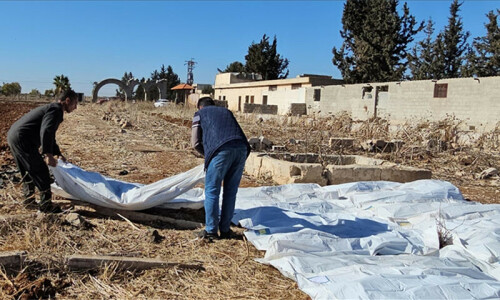OF what use are bans when they are not put into effect? Flouting all local and international laws that prohibit the hunting of the endangered houbara bustard, the authorities have issued at least 30 hunting permits to Arab dignitaries to further reduce the numbers of Pakistan’s annual winter visitor. This number is up from the 25 or so permits granted during the last hunting season. Attempts to soften the blow by issuing a code of conduct and monitoring a bag limit of 100 birds may not be the answer either, especially when the greed of local officials or their lack of clout allows them to look the other way when the rules are not adhered to. Given that the hunting continues unabated, studies claim that the houbara population, which has been driven to extinction in Arab lands, may not survive beyond another 15 or 20 years. This would be a great pity, and for Pakistan its loss would deal a further blow to the dwindling number of migratory birds wintering in the country.
A related controversy has been the trapping of young peregrine and saker falcons (migratory species) that are used to hunt the houbara. A number of local lager falcons are used as bait to capture the former varieties. This results in the death of a large number of local falcons. For the returning hunters, though, it means the acquisition of a younger peregrine or saker falcon that they can take back — on the same permit that allowed the older falcons to enter the country. There can be no excuse for such unethical practices, which, if not checked in time, will only increase and cause extreme damage to Pakistan’s biodiversity. It’s about time our government and wildlife officials woke up to the larger concerns posed by natural habitats under threat.











































